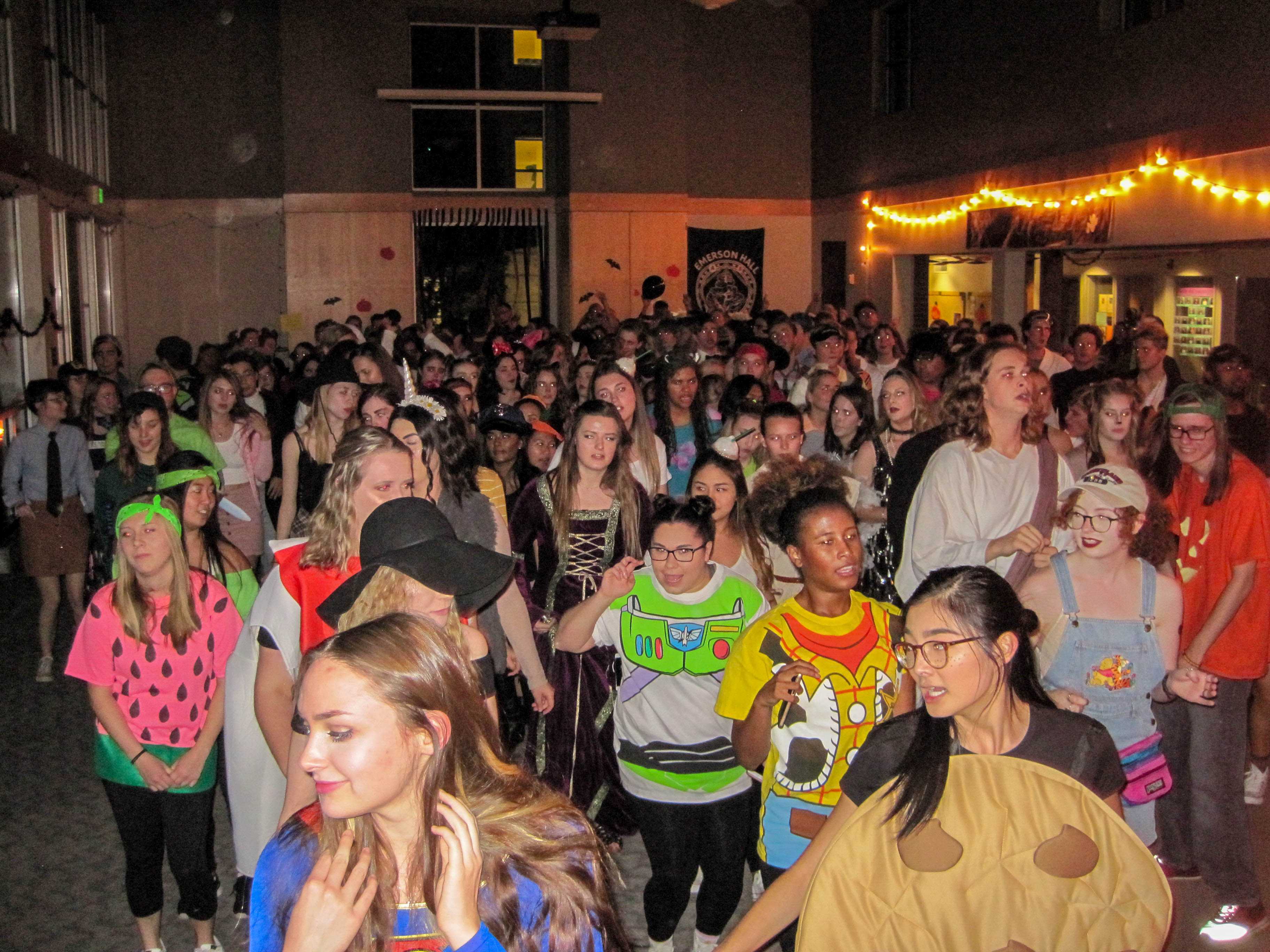Emerson Hill-oween invites all

Every year on Halloween and the weekend prior, college students across the country make a point to go out and partake in various, perhaps questionable, activities. Seattle Pacific University makes it clear that SPU is a dry campus, and although the campus itself is, not all of its students are.
So what can Seattle Pacific do to provide students with a safe alternative for Halloween?
Emerson and Hill hall councils decided to come together to create this year’s Emerson Hill-oween dance, where students could dance, participate in games, watch movies and enjoy seasonal snacks.
This year’s dance was held on Oct. 28 in the Emerson Lobby from 8 p.m. to 10:30 p.m., and students from all of the different residence halls could be seen wearing their various costumes.
Although a tradition for these two halls, last year’s dance was put on hold because of STUB’s “Masquerade Ball.” This was the first year the dance was opened to all students, not solely residents of Emerson and Hill.
The Emerson and Hill hall councils, the orchestrators of this event, threw themselves into planning a month ahead — they wanted to have plenty of time to create not only a dry space for students, but also a fun one.
Social Justice Director for Emerson Hall Hannah Todd said, “We wanted to give kids another outing besides partying, to just have fun, dress up if they want to. Especially since last year no one really did anything for Halloween.”
Todd recalls feelings of disappointment, knowing that she was required to go somewhere off campus in order to take part in an SPU Halloween activity.
As a sophomore, Emerson Hall Council President Chloé Otto felt encouraged to put on the event because, other than the “Masquerade Ball,” there was no opportunity for students to get dressed up or wear costumes last year.
Both Emerson and Hill hall councils wanted the event to be a way for students to get away from the pressure of midterms and have fun on Halloween, without feeling a need to go somewhere off campus.
“STUB had last night, we had tonight,” said Otto.
From the number of students that came to this event, it is clear that the hall councils were successful in this respect.
The success of the event highlights that perhaps SPU has room for improvement in the way it approaches party culture.
“I think what SPU could do in facilitating that kind of partying to end is that SPU should stop acting like it doesn’t happen,” said sophomore Emma Eekhoff. “If SPU were to say, or if other colleges were to say, ‘Partying doesn’t happen here, partying doesn’t happen with our students’, it would be like a parent saying, ‘My child is perfect, my child has never gone out and done anything.’”
“I think it’s better for universities to acknowledge it head on,” said Eekhoff.
Often, party culture can derive from the adolescent’s need to break out of their parents version of themselves, proving that they are independent.
“First-years coming in are so excited to be out of the house and they wild out … They don’t know how to do it safely. And it doesn’t work when a parent or the university just says ‘don’t go and drink,’” said Eekhoff.
“I really feel like as a university we really need to talk about these things and talk about the bad things that are happening, and what we can do to better them.”
Events like the Emerson Hill-oween can provide an opportunity for students to get away from party culture. As Eekhoff said, it is also the role of the university to treat its residents as young adults and acknowledge that it happens.
Of the residence hall dance, Eekhoff said, “I think it draws people who like party culture in some way, but I think this is a good facilitator of sober partying.”
“And it’s fun too.”














































































